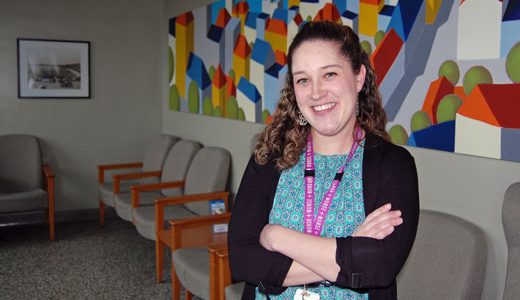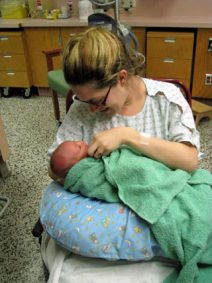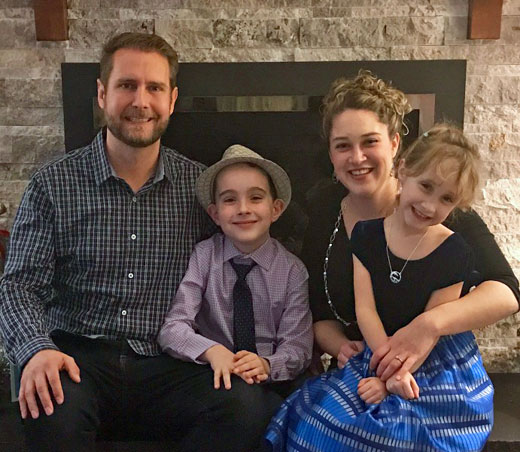Dara’s brush with death a life changer
“I’m a walking miracle,” says Dara Lewis. And she’s not saying that for effect.
Dara, a registered nurse, was eight months pregnant with her first child when she became suddenly and inexplicably ill.
“It was 4 am and I hadn’t slept. I had severe abdominal pain — unlike anything you could imagine,” she recalls.
At just 27 years old, Dara had had a healthy pregnancy up until that point. There were no previous symptoms that anything was awry; in fact, she had seen her doctor just that morning and all was fine. No one could have predicted what was about to happen.
Dara was admitted to Lions Gate Hospital, where the severity of her situation became clear.
A life-threatening complication
Dara was diagnosed with severe HELLP Syndrome, a rare and life-threatening pregnancy complication considered to be a variant of pre-eclampsia. It can lead to liver rupture, stroke and even death.
“My liver was enlarged and hemorrhaging and I needed an emergency C-section,” she says. “I was in shock and I was drugged up on Gravol™ and morphine, and I had to discuss my code status wishes without all my family present because it was an emergency.”
Dara remembers being told to say goodbye to her loved ones in case she didn’t survive.
But she did. And so did her son Cameron.
A lesson learned, a promise kept
Dara knows she and her family are fortunate, but she also believes things could have been different if she had been prepared.
“My story shows how any adult — no matter how young or seemingly healthy — can benefit from having their wishes and goals of care identified early.”
Dara promised herself that should she suffer from HELLP again — and she did three years later with her daughter’s pregnancy — she and her family would be prepared. They wouldn’t be in the position of making critical life-and-death decisions in the moment and under extreme stress. Dara had her goals of care documented. And, she encouraged her grandparents to do the same.
“I had the privilege of witnessing two beautiful deaths,” she says. “My grandfathers’ wishes were known to the family. There were no sirens, no ambulances, no chaos transferring facilities. My grandfathers passed away with their family around them, in an environment conducive to comfort and according to their personal wishes.”
Respecting patients’ wishes and worries
Today, as Vancouver Acute’s end-of-life leader, Dara is on a mission to integrate conversations about palliative care early — before a crisis — in a patient’s journey.
Thanks to a generous donation from Robert and Greta Ho through our VGH & UBC Hospital Foundation, Dara’s work is at the heart of the iPACE rollout across Vancouver Acute. Starting in VGH, Vancouver Acute will adopt iPACE (Integrating a Palliative Approach by having Conversations Early) and the recording of patients’ wishes and corresponding degrees of medical intervention.
“On the units, in the Emergency Department, we all have a responsibility to speak with patients and families about their wishes and worries. My role is to help staff and physicians increase their competence and confidence in having serious illness and goals of care conversations,” Dara explains.
“Having these conversations early will enhance patient outcomes but also improve job satisfaction. At the end of the day, it feels good to help patients and families be heard, and to help them prepare for what might lie ahead.”
Read VCH News for updates on iPACE and Medical Orders for Scope of Treatment (MOST) documentation in Vancouver Acute.



